At the 7th Zagreb Security Forum you will be able to listen, see and meet following experts that will offer their knowledge from the domains of various critical infrastructure protections (energy, water, and cyber).
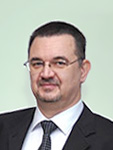
Assist. Prof. Gordan Akrap
Hybrid Warfare Research Institute, Croatia, born 1966, graduated at Zagreb Faculty of electronics and computing in 1994. In 2011 he received a PhD at the University of Zagreb, in the field of Information and Communication sciences. The title of his PhD was “Informational strategies and operations in public knowledge shaping”. He had an active role in Croatia’s Homeland war. During his career in diplomatic and security structures of Croatia he completed a number of professional courses, including Diplomatic Academy. He is active in research of national and regional security, intelligence and history of Homeland War. He published several books, and papers in journals and proceedings. He is editor-in-chief of National Security and the Future journal.
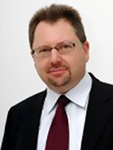
Prof. Dr. Shlomo Shpiro
President of International Intelligence History association, Israel, Head of the Europa Institute at bar Ilan University and Senior Research Fellow at the BESA Centre for Strategic Studies. Since 2008 he is also Chairman of the International Intelligence History Association (IIHA). He specializes in intelligence, terrorism and security studies. His research activities concentrate on the role of intelligence services as political mediators in the international arena, the intelligence activities of terror organisations, intelligence ethics and political influence, and on security crisis management and crisis communication.
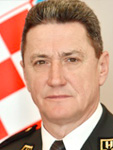
Major General Slaven Zdilar, PhD
Supervises, controls, directs and coordinates RACVIAC personnel on all matters and ensures efficient and effective use of all resources. He is responsible for RACVIAC Programme Proposal development and for execution of the approved Programme. MG Slaven Zdilar was born in Imotski, Croatia. He graduated from the Faculty of Natural Sciences and Mathematics at the University of Zagreb as Master of Science 1999 and PhD in 2007. During the Homeland War he started his career as Battalion Commander in the 4th Brigade of Croatian Armed Forces in 1991 and continued as 115th Brigade Commander and 114th Brigade Commander until 1995. He was the Head of Infantry Division from 1995 until 1998, and from 1999 until 2000 he was the Head of the Joint Doctrine Division.
He filled the position of Commandant of the Command and Staff School from 2001 until 2004, after which he was assigned as Head of Development and Equipping Department until 2005. From 2005 until 2008 MG Zdilar was the Chief of Staff of the Croatian Army and was then assigned as Deputy Commander of the Croatian Defence Academy until 2014. In 2014 he became Deputy Inspector General at the Defence Inspectorate at the Ministry of Defence, and in 2016 was promoted to Inspector General.
MG Zdilar graduated from the Military Academy in 1989, and the War College “Ban Josip Jelačić” in 2001.
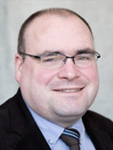
Mr. Holger Haibach
During his studies in 1997 he was the electoral district assistant of Brigitte Kölsch, Member of the Landtag. From 1995 to 1999 he was a research assistant at the Institute of classic Philology, Justus-Liebig-University, Glessen. From 2002 to 2011 he was a directly elected member of the German Bundestag; Deputy Chairman of the Committee for Human Rights and Humanitarian Aid; Spokesman of the CDU/CSU parliamentary group for Economic Cooperation and Development from 2009 to 2011. From 2005 to 2011 he was an alternate member of the Foreign Affairs Committee and at the same time member of the Subcommittee on Arms Control and Non-Proliferation. From 2011 to 2013 Konrad-Adenauer-Stiftung e.V.: Head of the Foreign Office for Namibia and Angola. From 2014 to 2015 he was named Head of the Chile Foreign office based in Santiago de Chile of the Konrad-Adenauer-Stiftung e.V. From 2015 to 2018 he was Head of Central Tasks and Services Department of CDU Germany. Since 2019 Konrad-Adenauer-Stiftung e.V.: Head of the Foreign Office for Croatia and Slovenia.
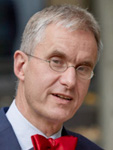
Prof. Dr. Ulrich Schlie
Director of the Center for Advanced Security, Strategic and Integration Studies (CASSIS) Henry Kissinger Chair for Security and Strategic Studies at the Institute for Political Science and Sociology. From November 2005 to March 2012 he was head of the planning staff and from April 2012 to February 2014 as Ministerial Director of the head of the Politics department in the Federal Ministry of Defence. He is i.a. Member of the International Institute for Strategic Studies (IISS), the Atlantic Bridge and the Politic-Military Society (PMG) and President of the Board of the Carl Jacob Burckhardt Foundation in Vinzel, Switzerland.
After retiring from the Mod in July 2014, he went back to science, first as a fellow at the Weatherhead Center for International Affairs at Harvard University and since August 2015 as the holder of the Chair of Diplomacy II at Andrássy University Budapest. In 2018 he published a biography of the Hitler assassin Claus Schenk Graf von Stauffenberg.
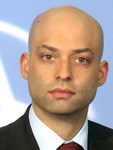
James Appathurai
Served as the Deputy Assistant Secretary General for Political Affairs and Security Policy and NATO Secretary General’s Special Representative for the Caucasus and Central Asia from December 2010 until April 2022. As DASG, he is responsible for NATO’s political relations with countries across the globe, international organizations, enlargement, and arms control. He provides policy advice on political issues affecting the security of the Alliance. He is responsible for implementing and developing NATO’s relations with all its partner countries and organizations, including through Political Agreements, Partnership Cooperation Programs, and other bilateral and multilateral arrangements. Mr. Appathurai previously served as NATO’s Spokesperson from 2004 to 2010. Prior to that he served as Deputy Head and Senior Planning Officer in the Policy Planning and Speechwriting Section of NATO’s Political Affairs Division from 1998 to 2004. He served in the Canadian Defence Department from 1994 to 1998. He has written more than 25 articles and book chapters on security issues, including on NATO, peacekeeping, Euro-Atlantic security, Canada and regional security cooperation. He wrote more than 25 articles and book chapters on security issues, including on NATO, peacekeeping, Euro-Atlantic security, Canada, and regional security cooperation.
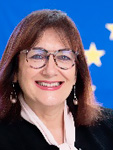
Dubravka Šuica
European Commission Vice-President for Democracy and Demography, a Croatian politician from the city of Dubrovnik, where she served two terms as its first female mayor. In 2006 she was awarded the World Mayor Award. Mrs Šuica holds a Degree in English and German from Zagreb Faculty of Humanities and Social Sciences. She and started her career in education: first as a teacher and later as the Director of the Dubrovnik High School.
She entered politics in the 1990s as a Member of the Croatian Democratic Union and served three terms as a Member of Croatian Parliament and Vice-Chair of the EU Integration Committee. Between 2004 and 2009 Dubravka Šuica was a Board Member of the Union of the Association of Towns and Municipalities of the Republic of Croatia, and later served as Councilor of the Dubrovnik-Neretva County Assembly. During ten years she was President of the Croatian Delegation to the Congress of Local and Regional Authorities of the Council of Europe.
From 2013 to 2019 Dubravka Šuica served as a Member of the European Parliament, responsible for issues related to environment, public health and food safety as well as foreign affairs. She was the head of Croatian EPP delegation in the European parliament. In June 2019, Šuica was elected as first Vice-Chair of EPP Group in the European Parliament.
Since December 2019, Dubravka Šuica is Vice-President of the European Commission in charge of Democracy and Demography.
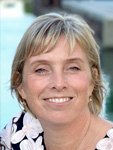
Dr. Dorthe Bach Nyemann
Senior Lecturer at the Royal Danish Defence College. From 2015-2018 she was a Danish representative and contributor to a Multinational Capability Development Campaign project (MCDC); Understanding and Countering Hybrid Warfare. She is currently participating in a NATO Science & Technology Organization, Systems Analysis & Studies Research Task Group focused on investigating contemporary hybrid warfare. During the last two years, her research has mainly focused on deterring hybrid warfare and hybrid threats and the role of international law and developments within the cyber domain. She chairs a cross disciplinary network on information operations and influence activities and the role of Defence.
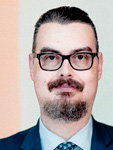
Dr. Janis Berzins
Director of the Center for Security and Strategic Research (CSSR) at the National Defense Academy of Latvia.
He is one of the leading specialists on Russian military strategy in the world. His work focuses on the juxtaposition between the theoretical developments of Russian Military Thought and the operational reality on the ground. This includes both the hybrid and conventional aspects of warfare, such as influence, information, and psychological operations. Dr. Berzins has lectured as a guest in the United States, Sweden, Norway, the Netherlands, Singapore, Belgium, Brazil, Estonia and Lithuania at various academic and defense institutions.

Neil Chuka
Defence Scientist / Strategic Analyst with Defence Research and Development Canada, Centre for Operational Research and Analysis. Over the course of the past 15 years he has supported the Canadian Armed Forces in the areas of doctrine development, strategic-level lessons learned, and a wide range of topics associated with joint force development. Since 2007 he has largely worked in direct support of the Canadian Armed Forces Chief of Force Development. Much of his work over the past 8 years has focused on military-specific foresight and concept development, often in partnership with colleagues in allied militaries. He has chaired or co-chaired three NATO Science & Technology Organization, Systems Analysis & Studies Research Task Groups focused on the investigation of contemporary hybrid warfare, including two in partnership with Ukraine. Major areas of research include information operations & and influence activities, the use of history and lessons learned as the basis for military learning, adaptation, and innovation, and the conceptualization of threat and the use of net assessment approaches for application in long-term military force development.
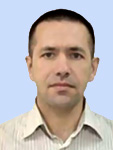
Col, Vasyl Shvaliuchynskyi, PhD
The Command and Staff Institute of the Use of Troops (Forces) of the National Defense University of Ukraine. Born in 1976, studied at military educational institutions, the last one - the National Defense University of Ukraine (strategic level) in 2021. PhD in Military Sciences (2008). Associate Professor (2013).
Main areas of research: military art, general tactics. He works as part of the international project "Military Aspects of Countering Hybrid War: Experience, Lessons, Best Practices." Now he is participating in the training of officers to conduct military operations in the Russian-Ukrainian war
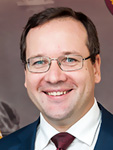
Mantas Bileišis, PhD in Social Sciences
Conducts research in the field of public administration on public administration and state and statutory services.
He has lectured on public administration at higher education institutions in many EU and other countries, has advised Lithuanian and foreign institutions on the improvement of internal administration, and has carried out expert evaluation of research project applications.
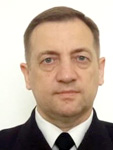
Captain (Navy) Stepan Yakymiak, PhD
(b. 1969, Lviv, Ukraine). PhD (military science, 2004). Chief of Naval Forces Department, National Defense University of Ukraine. Education: Nakhimov College (Leningrad, 1986), Naval Institute named after M. Frunze (Leningrad, 1991), Sevastopol Naval Institute (Operational level, 1998), National Defence University of Ukraine (Strategic level, 2008). Service and combat experience: Commander of Combat Unit of Minehunter ship (Black Sea Fleet, 1991), Operations planning officer (Headquarters of Ukrainian Navy, 1995), Chief of Department for Combat Experience and Training (Headquarters of Antiterrorist Operation, 2015), Adviser of Commander of Maritime Task Force of Defense Forces of Ukraine (2022, February, 24 – May, 30). Member of Working Groups on development of: Maritime Doctrine of Ukraine (Government of Ukraine, 2018), Doctrine of Naval Forces of Armed Forces of Ukraine ( Navy Command, 2020), Maritime Security Strategy of Ukraine (National Security and Defense Council of Ukraine, 2021). Initiator and organizer of the annual International Scientific Forum “Maritime Strategy of the State” (National Defense University of Ukraine. 2015-2021). Codirector and Lecturer of Ukraine – NATO Table Top Exercise “Coherent Resilience 2020” (13-17 September 2021). Author more than 200 scientific works, coauthor of 20 monographs and educational textbooks. Scientific research areas: national and international maritime security strategy, naval strategy, hybrid war at sea, joint maritime operations.
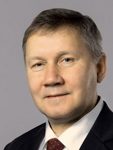
Gintaras Labutis, Assoc.Prof., PhD
Military Academy of Lithuania, Project Team Member and Moderator, European Defence Agency. Council Member, Global Military Advisory Council on Climate Change
Dr Gintaras Labutis holds PhD from Vilnius University and a MBA from Philadelphia University Philadelphia. His career involves top management positions in banking, leasing, insurance, innovation management and management consulting.
Presently, Dr Labutis teaches at the Military Academy of Lithuania (strategic management, project and change management, sustainable development, and energy security) and acts as public technology transfer consultant (energy, circular economy) at Lithuanian Innovation Centre. His research areas cover energy security and energy resilience, societal security and societal resilience, sustainable development and future studies (foresight).
In 2017-2022 he acted as Research Fellow at the NATO Energy Security Centre of Excellence (NATO ENSEC COE).
As security and defence energy expert Dr Labutis has been delegated by the Lithuanian MoD to participate in the projects coordinated by European Defence Agency since 2015. Those projects involve energy and energy security aspects and foresight exercises on future military technologies and future military energy technologies.
Presently Dr Labutis moderates one of the working groups at CFSEDSS - Consultation Forum for Sustainable Energy in the Defence and Security Sector Phase III (CF SEDSS III).
Dr. Labutis is member of GMACCC since 2021.
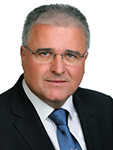
Prof.Dr. Iztok Podbregar
Full Professor at the Faculty of Organizational Sciences, University of Maribor and Dean of the Faculty. His major interests concern crisis management, critical infrastructure and human resource management. He teaches at undergraduate, master and doctoral level. He is author of several monographs, books, scientific articles published in Slovenia and abroad.
Prof. Podbregar was National Security Advisor to the President of the Republic of Slovenia, Chief of Staff of Slovenian Army, Former Director of the Slovenian Intelligence and Security Agency, Former Secretary of the Slovenian National Security Council, air-force pilot.
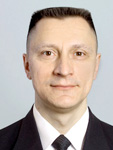
Col. Viacheslav Semenenko, PhD
The Center for Military and Strategic Studies of the National Defence University of Ukraine. Born 1976, graduated from some military institutions, last of them was the National Defence University of Ukraine (strategic level) in 2017. PhD in technical sciences (2012). Associate professor (2015). Major directions of research: hybrid war, military policy and military strategy, logistic, armament. Нe is operating within the framework of the International Project / Military Aspects of Countering Hybrid Warfare: Experiences, Lessons, Best Practices. He is currently participating in the Russian-Ukrainian war, the active phase of which began with the Russian invasion on February 24, 2022.
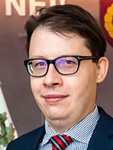
Prof. dr. Giedrius Česnakas
Professor at the Security Studies Research Group on International Relations and Russian foreign and security policy at the General Jonas Žemaitis Military Academy of Lithuania. He is also heading undergraduate and graduate study programs of political science at the Academy. He was awarded by the Lithuanian Academy of Sciences for the best research of young researchers in the humanities and social sciences for his dissertation “Energy Resources in Russia’s Foreign Policy towards Belarus and Ukraine (2000 2012”. He is also actively involved in close cooperation with state institutions of the Republic of Lithuania, advising on security issues.
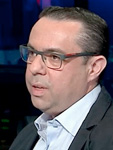
Barak Bouks, PhD
(Bar-Ilan University, 2016), specializes in Religion & Terror. I won a scholarship, to attend and present a paper, at UCSIA's Summer school, The University of Antwerp, Belgium, Under the theme "Is Faith-based Violence Religious". In 2017, I served as committee member of the Jabotinsky Prize for Literature and Research. Throughout 2017-2018, I was elected as a peer reviewer for the journals Terrorism and Political Violence, Religion State and Society & Conflict Management and Peace Science. In 2020, I was nominated as an Editorial Team Member and the head of a consulting refereed regulation team, of the Scientific Journal "Security Science Journal", published by the Institute for National and International Security (Serbia) & The Europa Institute (Bar-Ilan University, Israel), The Research Institute for European and American Studies - RIEAS (Greece) and ITS – Institute for Transnational Studies (Germany). Main research interests are Terror & Religion, Middle-East & Security (Focusing in Lebanon), Arab Media (Focusing in Middle-Eastern regional media), conducting surveys, as well as qualitative & quantitative analysis (SPSS & Excel). In addition, Dr. Bouks serves as a commentator in the Israeli electronic media: Radio (Radio Eretz, Galei Tzahal) & T.V Channel I24 News.

Teun Van de Ven
Lieutenant commander in the Royal Netherlands Navy, in active service now for 22 years. The first five years of his assignment he was trained and educated at the Royal Netherlands Navy Acadamy in Den Helder, nowadays an entity of the Netherlands Defence Academy. Throughout his career, he committed several duties in the operations department onboard various types of Dutch navy vessels. He is experienced in naval mine warfare, and had a position as a tactical instructor in that branch before he stepped into his current assignment, that of a policy officer in the central staff of the Netherlands ministry of defence.
He recently completed a master degree in Military Strategic Studies (MSS), a program offered by the Netherlands Defence Academy.
He finished his MSS program with a thesis about the sensemaking concept, a profound theory in field of organization studies. The sensemaking concept is a managerial approach for organizations who wish to cope with complexity and fierce competition. Mr. Van de Ven’s research focused attention on the application of sensemaking concepts within the Dutch intelligence and security community.
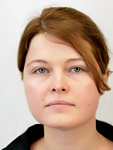
Dr. Vira Ratsiborynska
Adjunct Professor on NATO and transatlantic approaches to security and Global politics at the Vrije Universiteit Brussel (VUB). Her areas of research interests include the relations between the EU-NATO and the Eastern partners, Russia and Central Asia, e.g. in energy, trade, geopolitics, border security, conflict management and peacekeeping. Vira Ratsiborynska holds a Ph.D. from the University of Strasbourg, France. She wrote her dissertation on the European Neighbourhood Policy (with regard to the East) and publishes extensively in English and French on the topics of the European Union and the Eastern flank’s security, the relations with the Eastern Partnership countries, NATO and Russia. She obtained a Master’s degree in EU Studies from the College of Europe (Belgium) and a Master in Political and Social Studies from Sciences Po (France). Her professional experience includes working in support of such organizations as the European institutions and NATO entities. She also has corporate experience in an American public affairs consultancy in Brussels as well as experience in communication and diplomatic fields. Dr. Ratsiborynska speaks English, French, Russian, Ukrainian, Polish, Dutch, and German.

Dr. Danilo Kalezic
Senior Research Fellow at History Institute of the University Montenegro and Loyola University PhD candidate in comparative politics.
His main focus is democratization and its external threats, with significant experience in studying Russian interference in the Western Balkans.

ir. Yvan De Mesmaeker
Secretary general of the European Corporate Security Association – ECSA, Yvan De Mesmaeker is a Civil Engineer with over 25 years of professional experience in Corporate Security and Resilience.
The European Corporate Security Association - ECSA, a non-for-profit Professional Association of Managers and Officials in charge of the Security & Resilience of Corporations and International Institutions.

Dr. Eleni Kapsokoli
Eleni Kapsokoli holds a PhD degree from the Department of International and European Studies of the University of Piraeus. Her PhD thesis is titled “The transformative effect of cyberspace on terrorism: the case of Islamic terrorism”. She holds a bachelor's degree from the National and Kapodistrian University of Athens at the faculty of Political Science and Public Administration and earned a master’s degree in International Relations and Strategic Studies at the Panteion University of Social and Political Sciences. Her main research interests include international security, terrorism, Islamic terrorism, cybersecurity and cyberterrorism.
Mrs. Kapsokoli was a Ph.D. Fellow at the European Doctoral School on the Common Security and Defence Policy (CSDP). She is also a researcher at the Laboratory of Intelligence and Cyber-security of the University of Piraeus and a research fellow at the Institute for National and International Security (INIS) of Serbia.
Amelia Tomalska
PhD Candidate at the University of Warsaw, in Doctoral School of Social Sciences and a lecturer. Her research mainly focuses on critical infrastructure protection, risk and vulnerability management.
She gained professional experience in the field of security and international cooperation working for the Government Centre for Security and European Border and Coast Guard Agency.
She worked as national Critical Infrastructure Point of Contact and Integrated Political Crisis Response point of contact for the European Union.

Mislav Novaković
A graduate of the University of Zagreb, where he developed and researched various security-related topics, especially Regional Security and Nuclear Security. He also received basic military training in the Armed Forces of the Republic of Croatia and has published several articles in scientific publications regarding international and national security issues.
His current research is mainly focused on issues regarding nuclear safety and security, working at Ekoteh dozimetrija d.o.o. as a security expert and safety evaluator.
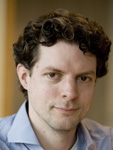
David Vaandrager
A PHD-student at the Erasmus University of Rotterdam (Defense Febuary 24th 2023). He studied Human Geography at the University of Utrecht and Public Administration at the University of Rotterdam. His research centers on institutions and their ability to accommodate change stemming from their environment.
Dr. Giliam de Valk
Initiated, coordinated, and lectured at different academies a minor intelligence studies. Dr. G.G. (Giliam) de Valk (1961) studied at the Law Faculty of Leiden University. He wrote his dissertation (2005) at the Law Faculty of University of Groningen on the quality of intelligence analyses: Valk, Giliam de, Dutch Intelligence: Towards a Qualitative  Framework for Analysis. Den Haag: Boom juridisch, 2005.
Framework for Analysis. Den Haag: Boom juridisch, 2005.
Since 2016 he is assistant professor at the Institute of Security and Global Affairs (ISGA) of the Leiden University. He lectures and researches on intelligence, analysis and methodology. After his dissertation he started to work as a lecturer at the Department for Political Science (2006-2008) and at the Institute for Interdisciplinary Studies (2007- 2016) of the University of Amsterdam. At this Institute, he was the initiator and coordinator of the Minor Intelligence Studies (2007-2016). In 2012, he transformed this Bachelor Minor Intelligence Studies into a center: the Ad de Jonge Center for Intelligence and Security Studies.
In 2016, he and his team transferred to the ISGA (see above). From 2006-2011, he was a lecturer for the History of International Relations Section at the University of Utrecht. He taught on issues as intelligence studies, strategy (Von Clausewitz), humanitarian intervention, counterinsurgency, terrorism and counter-terrorism.
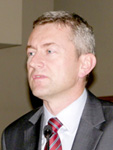
Prof. Dr. Artur Gruszczak
Head of the National Security Department at the Faculty of International and Political Studies, Jagiellonian University in Krakow, Poland. Expert of the Centre international de formation européenne in Nice. He provided expertise in security, migration and intelligence matters for the Polish Ministry for Foreign Affairs and Ministry for Internal Affairs, the Office of the Polish Prime Minister, the European Parliament and independent analytical institutions, such as Statewatch in London, Oxford Analytica and GLOBSEC in Bratislava. His scholarship contains eleven academic books (four as a co-author), editorship of nine collected volumes (five as a co-editor), 90 chapters and 60 articles.
Recently he co-edited two collected volumes for Routledge and Palgrave Macmillan and published a monographic book with Palgrave Macmillan. Analytical and detail-oriented young professional with interest and experience in critical infrastructure protection and crisis management.
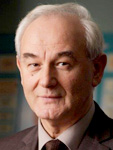
Prof. Dr. Slavko Vidović
Director and founder of the InfoDom Group with companies in Croatia, Bosnia and Herzegovina and United Kingdom Throughout his career he has been active in leading large-scale projects in the area of state authority, public companies and organisations. In addition to that, through his scientific-educational efforts he has contributed to a number of scientific and research projects, such as artificial intelligence-specific area, supporting systems in decision-making and application development.
He lectures at the Faculty of Organisation and Informatics of the University in Zagreb and holds membership at National Council for Electronic Business of Government of Republic of Croatia and the National Council for Competitiveness, BPM Institute, PMI and Tele Management Forum.
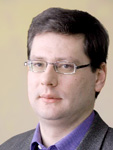
Dr. Vytis Kopustinskas
Presentation title: Research activities on resilience of critical energy infrastructure at the JRC Vytis Kopustinskas received PhD in mathematics from Vytautas Magnus University (Kaunas, Lithuania) in 2001. Worked in the field of nuclear safety for over 10 years. Since 2007 serves as scientific officer at the European Commission, Joint Research Centre (JRC), Ispra, Italy. Joined energy security activity at the JRC in 2011.
Research interests include risk analysis, resilience and vulnerability assessment, security of supply, uncertainty and sensitivity analysis. Experience includes nuclear probabilistic safety assessment, gas network modelling from security of supply perspective, and resilience assessment of power grids.
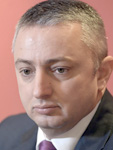
Prof.Dr. Darko Trifunović
Director of the Institute for National and International Security, professor at Faculty of Law, Administration and Security, Megatrend University, Belgrade. He was elected as guest professor at FUDAN University – Center of American Studies, Shanghai, China. Senior Research Fellow and lecturer at Faculty of Security Studies-University of Belgrade. He is Senior Adviser at the Research Institute for European and American Studies, Greece, Athens. He is a specialist in Security studies, Intelligence & Counterintelligence studies as well as Counter-Terrorism, National and International Security studies.
He is a former diplomat (First Secretary of the Foreign Service of Bosnia and Herzegovina at the United Nations). Dr. Trifunovic is the representative for Serbia and Montenegro of International Strategic Studies Association (ISSA); Defense & Foreign Affairs publications; and the Global Information System and he is member of the Advisory Board of the Institute of Transnational Studies, Munich, Germany. The Shanghai Center for International Studies appointed him as the first foreign expert for the Olympic Games (2008) security preparation in China. In 2010, he is engaged in World Expo Security preparation and is a Member.
Dr Trifunovic is regular speaker at International Counter Terrorism Institute, Tel Aviv, Israel, and Prof.Dr Darko Trifunovic is one of the founding Members of the International Counter Terrorism Academic Community (ICTAC). He has published numbers of academic books papers and articles.
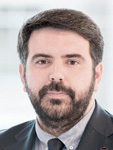
Mr. Ljubomir Filipović
Analyst from Montenegro. He served his community as a Deputy and Acting Mayor of Budva and Political Advisor to Members of Parliament. He provides policy, capacity development, and management consulting support to governmental, nongovernmental, and private institutions in Europe; designs and implements economic trade and investment strategies for Eastern Europe and the Caucasus. He is published and is frequently called on by media platforms for commentary on global affairs.
He has long-term executive management experience gained in complex, integrated, and innovative development projects in collaboration with governmental, nongovernmental, and private institutions in developing and transitioning countries. He possesses the diverse background in government affairs, organizational management, communications, and media.
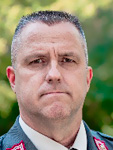
Lieutenant Colonel Janne Mäkitalo
Serving as Military Professor in the Department of Warfare in National Defence University, Helsinki. His research and teaching area is operational art and tactics, especially Finnish art of war. Mäkitalo is a general staff officer and a Doctor in Military sciences.
He has served most of his career with operational planning, teaching in military academies and in various R&D duties. He has published studies for example about Yugoslav art of war, Finnish Infantry regiment 1 in the continuation war 1941–1944 and the development of the Finnish combat engineer tactics. Studies in connection with his military professor post have focused on the impact of future warfare to Finnish national defence and especially to art of war. His other studies prepared as a member of international research groups have dealt with Hybrid warfare.
Before joining National Defence University Mäkitalo has previously served as an engineer battalion commander in Pori Brigade and as the chief of the Army Research Center.
Important information:
- Forum is organised according to pandemic situation in a hybrid way – “in situ” and online
- Every activity (conference halls, restaurants, coffee breaks, rooms) are going to be organised in a Hotel due to the disease prevention.
- Forum organisers are reserving the right to change the Program according to the necessities.